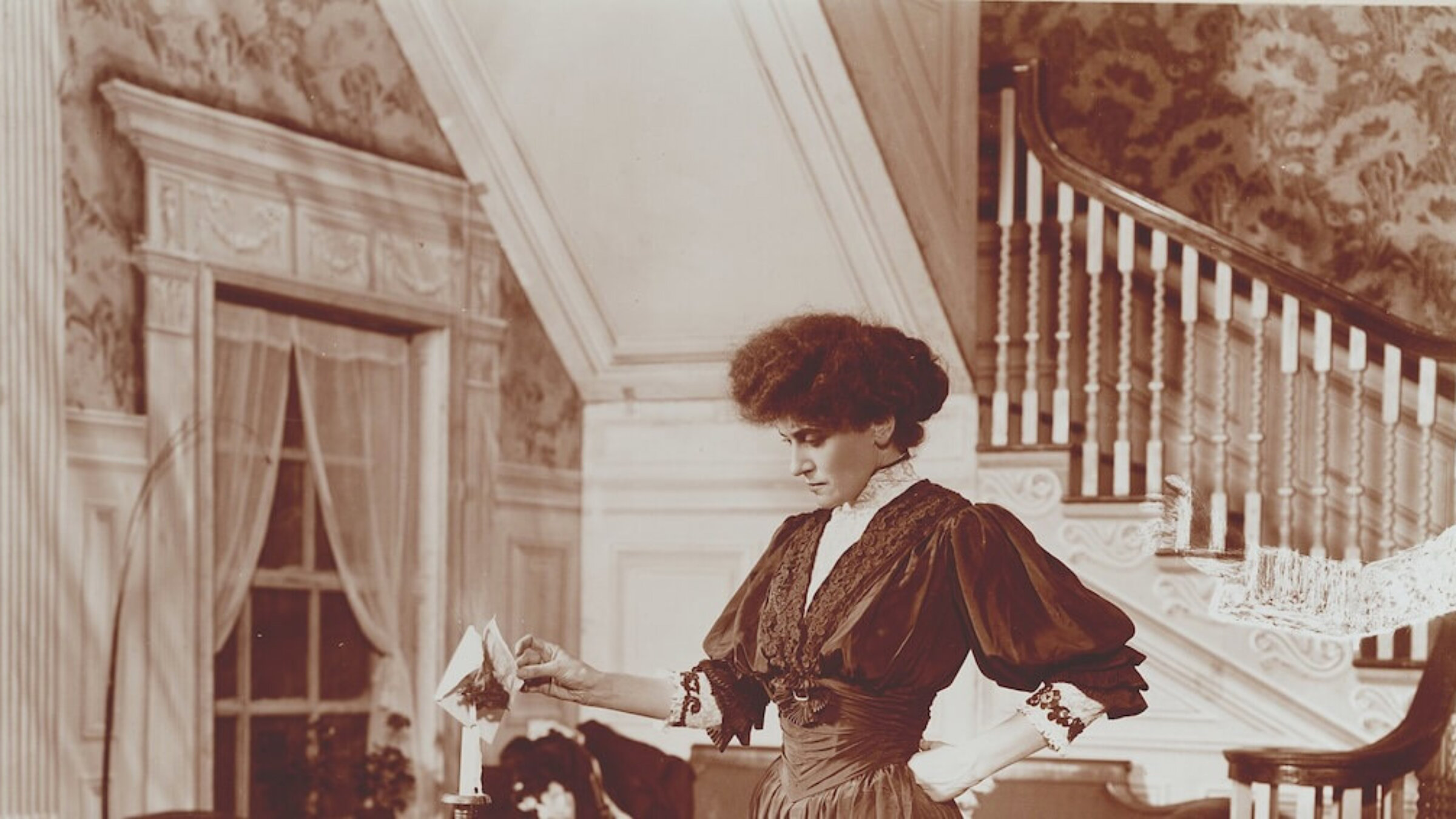VIDEO: Playwright Jacob Gordin brought realism into the Yiddish theater
This month marks 170 years since the birth of the playwright who translated “The Kreutzer Sonata” and “King Lear” into Yiddish

Bertha Kalich as Miriam Friedlander in Gordin’s 1902 Yiddish translation of “The Kreutzer Sonata” Photo by Wikimedia Commons
This month marks 170 years since the birth of the Yiddish playwright and journalist Jacob Gordin, who was born in the Ukrainian city of Mirgorodon on May 5, 1853. Gordin is credited with having brought realism into the Yiddish theater through his productions which included a Yiddish version of Shakespeare’s play King Lear and a translation of Lev Tolstoy’s The Kreutzer Sonata.
In his youth Gordin followed a unique trajectory for a Jewish young man, founding a religious sect based on ideas promoted by Russian novelist Lev Tolstoy. After the Czarist police disbanded the group, Gordin was forced to flee to America, where he began an unexpectedly successful career as a playwright for the Yiddish theater.
When Gordin arrived in New York, most Yiddish productions were light musical productions with vaudeville elements. He decided to take a more serious, naturalist approach to the Yiddish theater. In addition to The Yiddish King Lear and The Kreutzer Sonata, he also wrote his own plays. Two that were both a critical and popular success are Mirele Efros and Got, Mentsh un Tayvl (God, Man and the Devil). The Cambridge History of English and American Literature has characterized him as “the acknowledged reformer of the Yiddish stage.”
In this short Yiddish video with English subtitles, novelist and former Forverts editor Boris Sandler describes Gordin’s life, with all its surprising twists and turns.
A message from our CEO & publisher Rachel Fishman Feddersen
I hope you appreciated this article. Before you go, I’d like to ask you to please support the Forward’s award-winning, nonprofit journalism during this critical time.
At a time when other newsrooms are closing or cutting back, the Forward has removed its paywall and invested additional resources to report on the ground from Israel and around the U.S. on the impact of the war, rising antisemitism and polarized discourse.
Readers like you make it all possible. Support our work by becoming a Forward Member and connect with our journalism and your community.
— Rachel Fishman Feddersen, Publisher and CEO